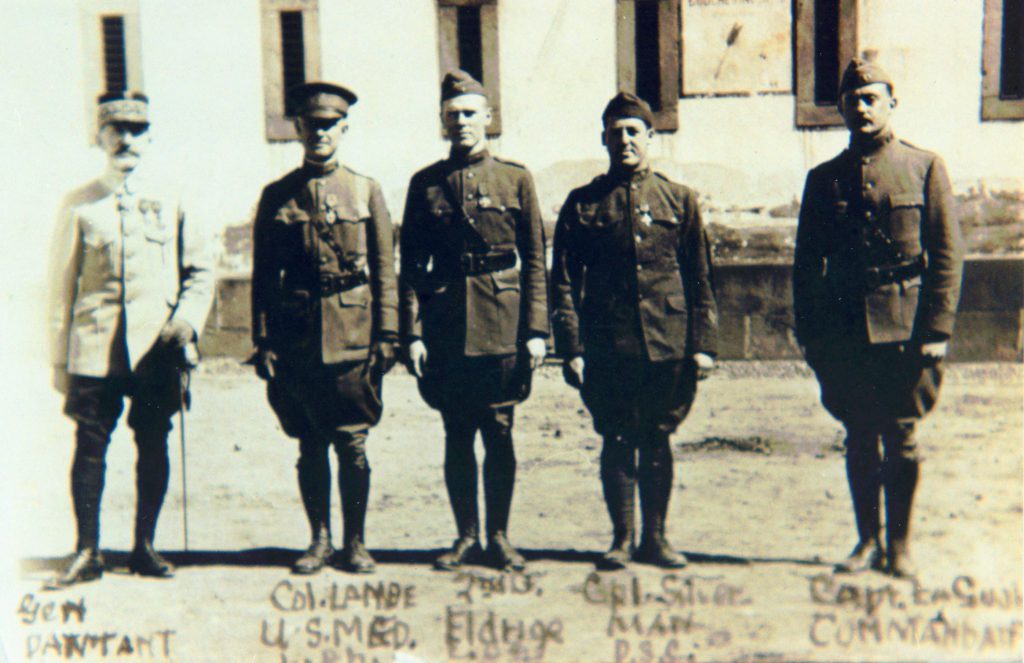 A series profiling American Jewish service in the First World War
A series profiling American Jewish service in the First World War
Hyman Silverman
Heroism in the Meuse-Argonne
On October 27, 1918, German fire ignited an ammunition dump near Verdun. While exploding shells were seriously wounding his comrades, Private Hyman Silverman jumped into action. He began removing the ammunition even as more exploded around him. Silverman was hit multiple times by grenade explosions. But he continued pulling ammunition from the blazing pit until most of the explosives had been removed to safety. Not finished yet, Silverman, ignored his own wounds to pull his injured comrades away from the explosions. Only after they had reached safety did Silverman accept medical attention for himself.

After the battle, the Army declared him a hero. Silverman was awarded the Distinguished Service Cross for extraordinary heroism in action. Silverman received the medal in May of 1919 in a ceremony at Clermont-Ferrand, France where he was receiving training at the school for U.S. troops. The French government also awarded him the Croix de Guerre. The 60th Infantry, 5th Division was near Verdun as part of the Meuse-Argonne Offensive. It’s known as the bloodiest battle of the war with over 26,000 American lives lost. Silverman reported that his company, Co. E, had 117 casualties, 15 killed and 102 wounded or gassed. It was also one of the most significant victories of the war for the Americans. The American advance played a key role in forcing the Armistice two weeks later on November 11th.
Less than a year prior to the battle, Silverman had been a bookkeeper in Chelsea, Massachusetts and a student at Northeastern University. The son of Russian immigrants, Silverman had left high school at age 15 for full-time employment. He’d worked a variety of jobs including at the canteen of the U.S. Naval Hospital in Chelsea. While working there, he took night classes at the YMCA. Silverman was three years through his Northeastern education when drafted into the Army. He entered service on November 23, 1917.
On September 3, 1919, Silverman was discharged as a corporal at Camp Devens, Massachusetts. In addition to the Meuse-Argonne, he’d seen action in the St. Mihiel Offensive and been a part of the Army of Occupation. After the war, Silverman returned to Chelsea to graduate from Northeastern and practice accounting. He and his wife Jennie had three daughters including Beatrice. She joined the U.S. Navy WAVES in World War II and was the first wife of author Norman Mailer.